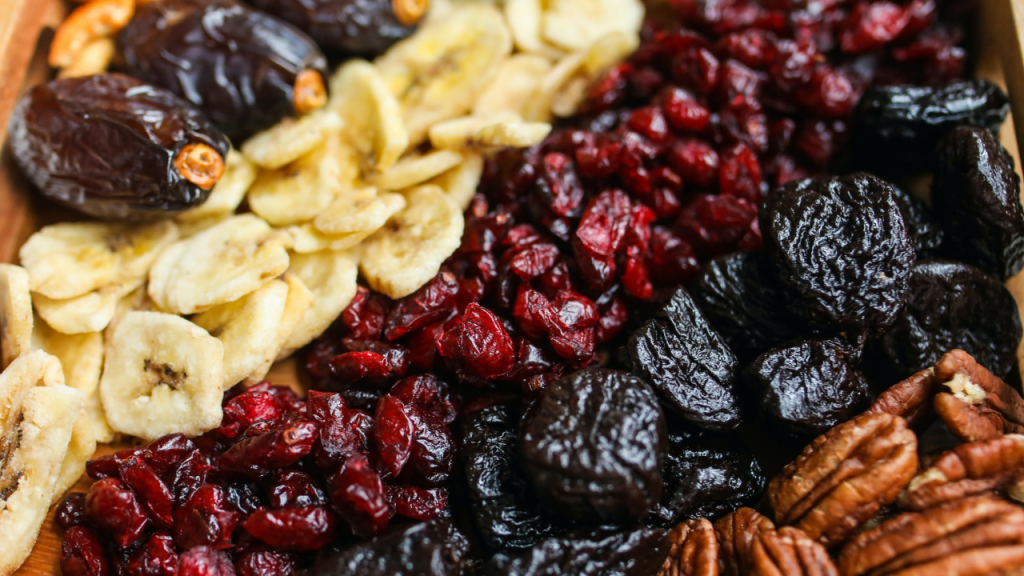Dried fruit, celebrated for its convenience and flavour, presents a variety of health benefits. But, too much of a good thing isn’t always great, and the same is true for dried fruit.
Dried fruit, a result of water content removal through various drying methods, offers a small, energy-dense snack. Raisins, dates, prunes, banana, apples and apricots are among the most common varieties, with some available in candied form.
Pros
Condensed nutrition
Dried fruit stands out for its nutrient density, containing almost the same amount of nutrients as fresh fruit in a smaller package. It boasts up to 3.5 times the fiber, vitamins, and minerals, contributing significantly to daily recommended intake. Rich in phenolic antioxidants, dried fruit supports improved blood flow, digestive health, and reduced disease risks.
Weight management and disease prevention
Observational studies link dried fruit consumption to lower weight, increased nutrient intake, and reduced risk of obesity. Specific varieties, like raisins, have demonstrated potential in lowering blood pressure, improving blood sugar control, and decreasing inflammatory markers, lowering the risk of type 2 diabetes and heart disease.
A natural laxative and disease fighter
Prunes, high in fiber and sorbitol, serve as natural laxatives and offer protection against heart disease and cancer through antioxidant properties. The boron content in prunes aids in combating osteoporosis.
Rich in antioxidant
Dates, rich in antioxidants, fiber, potassium, and iron, play a role in reducing oxidative damage, moderating blood sugar levels, and potentially assisting in labour for pregnant women.
Cons
Sugar concentration
The dehydration process concentrates natural sugars, resulting in a high-calorie and high-sugar snack. Common varieties like raisins, dates, and apricots can contain 38–66% sugar, raising concerns about weight gain and health problems associated with increased sugar intake.
Some dried fruits, coated with added sugar or syrup, pose additional health risks. Added sugar consumption is linked to obesity, heart disease, and cancer. It is crucial to scrutinise labels and avoid brands with added sugars.
Sulfites and potential allergic reactions
Some dried fruits contain sulfites, which may trigger adverse reactions in sensitive individuals. Choosing brown or grayish varieties over brightly coloured ones can help avoid sulfite-related issues.
While dried fruit offers a convenient and nutrient-dense snack, it’s essential to strike a balance. Moderation, awareness of added sugars, and consideration of potential contaminants are vital for individuals seeking to enjoy the benefits of dried fruit without compromising overall well-being.
ALSO SEE: Passionfruit and lime icebox cake
Feature image: Pexels


